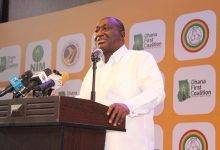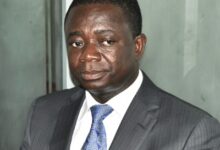A promise made and kept
On the morning of the first working day of the New Year, Chinese State Councilor and Foreign Minister Wang Yi embarked on his first trip abroad in 2022. It was to Africa, of course. It has been an unbroken tradition of China’s diplomacy for 32 years, rain or shine, Ebola or Omicron.
It is Wang’s second journey to Africa in a little over a month. In late November, he visited the continent for the eighth Ministerial Conference of the Forum on China-Africa Cooperation (FOCAC).
In his keynote address during the conference’s opening ceremony, Chinese President Xi Jinping reaffirmed the spirit of China-Africa friendship and cooperation: sincere friendship and equality, win-win for mutual benefit and common development, fairness and justice, and progress with the times and openness and inclusiveness.
The Chinese President also proposed nine programs in medical health, poverty reduction and agricultural development, trade promotion, investment promotion, digital innovation, green development, capacity building, cultural and people-to-people exchange, and peace and security and put forth the building of a China-Africa community with a shared future in the new era.
This New Year’s trip is to follow up and deliver. It is a testament to the time-honored, profound friendship between China and Africa and represents engagement for deeper cooperation and mutual benefit, and a commitment to peace, progress and prosperity of the developing world.
A friend in need
Braving the shock of Omicron, Wang traveled to Eritrea, Kenya and Comoros. Health is high on the agenda, and rightly so. African countries have been hit hard by the virus. The need for vaccines is apparent.
The World Health Organization had put forward the goal of achieving full vaccination rates of 40 percent in every country by the end of December 2021, a target missed across most of Africa.
Challenging times reveal true friendship. President Xi announced another one billion doses of vaccines to Africa at the FOCAC meeting to help make vaccines more accessible and affordable and bridge the immunization gap.
China will provide another 10 million doses to Kenya and as many vaccines as Comoros requires to realize vaccination for all within this year.
And not just that, in Chinese philosophy, you give others fish and also teach them how to fish. There will be joint production of vaccines, development of cold-chain facilities and medical and health programs to build greater preparedness capacity and response to the current pandemic and potential outbreaks. Such gestures attest to China’s strong resolve to stand firmly with Africa until the virus is ultimately defeated.
Wang’s visit to the Horn of Africa is against a backdrop of much-reported flareups in the region. The situation in Ethiopia, Somalia and Sudan has made news headlines for quite some time, albeit for distressing reasons.
A genuine friend is always ready to oblige. State Councilor Wang proposed an outlook on peace and development in the Horn of Africa, tossing out the idea of a peace conference and offering to appoint a special Chinese envoy to facilitate the process.
In a nutshell, China suggests addressing both the symptoms concerning security and the root causes related to development and governance. It’s also important to accelerate economic growth to resolve ethnic and religious discord. It is also essential to keep the region’s destiny in its own hands to pursue development and achieve stability, Africa-led and Africa-owned.
Non-interference in internal affairs, a principle enshrined in the Charter of the United Nations, remains as true today as ever before, if not more.
A partner in deed
As peace and security are a prerequisite for development and progress, growth and prosperity, in turn, reinforce stability and harmony.
At the new Kipevu Oil Terminal (KOT), the largest of its kind in Africa, built by a Chinese company, Wang rekindled the memory of historical bonds, referencing Chinese navigator Zheng He’s three visits to Mombasa over 600 years ago, when he presented to the local communities nothing but goodwill and tea.
The Foreign Minister commended the Chinese engineers, saying that they followed in Zheng’s illustrious footsteps by contributing to the best railway, the Standard Gauge Railway from Nairobi to Mombasa, and the best oil terminal in Kenya. Both are signature harvests in high-quality, people-centred Belt and Road cooperation between China and Africa.
Standing side by side with Wang, Kenyan President Uhuru Kenyatta said the new offshore jetty, which replaces the 50-year old onshore KOT, will cut fuel costs and ensure that Kenya and the region consistently have adequate fuel supply for the people’s development needs.
“Our partnership with China is not a partnership based on China telling us what to do. It is a partnership of friends working together to meet Kenya’s socioeconomic agenda,” Kenyatta said.
“I can clearly say Kenya would not have been able to achieve many of our social economic development agendas without the support of China. And this is something that not only we as a government appreciate but also the people of Kenya appreciate.”
Powerful words, noble deeds.
More than 10,000 kilometers of railways have been completed, nearly 100,000 kilometers of roadway built, almost 1,000 bridges and 100 ports, numerous hospitals and schools, the list of China-Africa cooperation goes on.
Numbers don’t lie, and facts speak the loudest. The Chinese saying “To get rich, road and bridge” most aptly captures how infrastructure can make a big difference.
However, the China-Africa partnership is much more than that. Trade, investment, digital innovation, green growth, cultural ties, opportunities abound.
With an impressive track record and a firm dedication to solidarity and partnership, China and Africa, comrades-in-arms, will make new, big strides on the path to modernization. Improving the well-being of the 2.7 billion Chinese and African people is what this mutually beneficial partnership is all about.
Rewind to 1963, in his first trip to Africa, the late Chinese Premier Zhou Enlai described the visit as a journey for friendship and cooperation. The principles of equality, mutual benefit and non-interference he expounded on almost 60 years ago resonate most compellingly today.
Five decades since the restoration of New China’s lawful seat in the United Nations, the Chinese people have not forgotten the profound friendship of their African brothers and sisters.
Guided by the commitment to true multilateralism and international justice, China and African countries will continue to work closely together to safeguard the common interests of the developing world and open up a new chapter in human history where each and every nation enjoys the right to development and gets to make their dreams come true.
Source: CGTN







